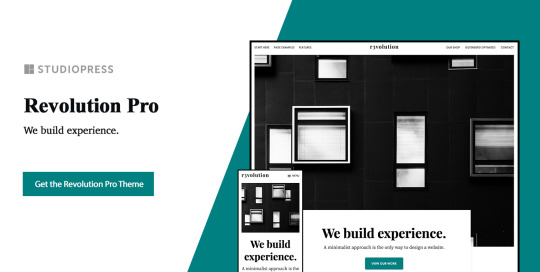#EmpowerYourCreativity:DIYDelightsUnleashedOnline!
Explore tagged Tumblr posts
Text
Investing for the Long Term & Short Term for Freelancers

Investing for the Long Term & Short Term for Freelancers
As a freelancer, it's essential to set financial goals and actively save for short-term and long-term goals. This guide will provide you with valuable tips to help you save effectively and achieve your financial goals. Short-Term Goals 1. Set a Budget: The first step in saving is to establish a budget. Track your income and expenses to understand where your money is going and identify areas where you can cut back. 2. Pay Yourself First: Aim to save a portion of your income before spending it. This can be achieved by setting up automatic transfers into a separate savings account. 3. Minimize Disposable Income: Avoid unnecessary expenses by living within your means. Avoid compulsive spending and prioritize essential purchases over non-essential items. 4. Invest in Tax Deductions: Take advantage of tax deductions available to freelancers. By claiming allowable deductions, you can reduce your tax liability and save more money.

Photo by Mathew Schwartz Mungyeong-si, South Korea Long-Term Goals 1. Set a Financial Plan: Create a detailed financial plan that outlines your financial goals, time horizons, and strategies to reach them. This plan will serve as a roadmap for your savings journey. 2. Invest in Retirement: Start saving for retirement as soon as possible. Invest in a retirement savings plan such as a 401(k) or an IRA. Aim to save at least 15% of your income towards retirement. 3. Save for a Rainy Day: Establish an emergency fund to cover unexpected expenses such as medical bills, car repairs, or job loss. Aim to save at least three to six months' worth of living expenses. 4. Pay off High-Interest Debt: If you have any high-interest debt, prioritize paying it off first. High-interest debt can quickly accumulate interest, making it more difficult to save effectively. Conclusion As a freelancer, saving for short-term and long-term goals is crucial for financial success. By implementing these strategies and adhering to a budget, you can save money and achieve your financial goals. Remember, saving is an ongoing process, so stay focused and disciplined to achieve your financial goals. Read the full article
#bestdiybusinessideas#businessgrowth#businesssuccess#digitalbusiness#digitalentrepreneur#digitalgrowth#digitalmarketing#digitalmarketingtips#digitalstrategy#digitalsuccess#digitalsuccessstrategy#diybusinesscardideas#diybusinessforsale#diybusinessfromhome#diybusinessideas#diybusinessideasforstudents#diybusinessnews#diylifehack#diylifestyleblog#EmpowerYourCreativity:DIYDelightsUnleashedOnline!#entrepreneurlifestyle#entrepreneurmindset#entrepreneurmotivation#entrepreneurship#howtostartadiybusiness#InvestingfortheLongTerm&ShortTermforFreelancers#odiyi#onlinediyideas#onlinediyideasblog#onlinedoityourselfideas
0 notes
Text
Strategies for Negotiating Higher Freelance Rates and Fees

Strategies for Negotiating Higher Freelance Rates and Fees
As a freelancer, negotiating higher rates and fees can be essential to building a successful and sustainable career. By effectively negotiating, you can ensure that you receive fair compensation for your skills and expertise. Here are some strategies to help you negotiate higher rates and fees as a freelancer. 1. Research Market Rates Before initiating any negotiation, it's crucial to have a solid understanding of the market rates for freelancers in your industry. Research what other freelancers are charging for similar projects and what clients are willing to pay for your services. This information will serve as a reference point during the negotiation process. 2. Highlight Your Unique Skills and Expertise When negotiating higher rates, it's important to highlight your skills and expertise that make you stand apart from other freelancers. Highlight any specialized knowledge, certifications, or awards that make you a unique and valuable asset to your clients. This can help justify your higher rate and demonstrate the value you bring to their work. 3. Present Your Value Proposition During the negotiation process, it's essential to present a compelling value proposition to your clients. Clearly articulate the unique benefits they will receive by working with you. This can include factors like your ability to deliver high-quality work within tight deadlines, your strong communication skills, or your ability to adapt to the client's specific needs.

Photo by rawkkim Sejong-si 4. Offer Value-Added Services In addition to negotiating higher rates, consider offering value-added services to your clients. This could include offering extended support beyond the initial scope of work, providing additional resources or materials, or offering additional training or consulting. By providing additional value, you can justify the higher fee and differentiate yourself from competitors. 5. Anticipate Objections and Counterarguments During the negotiation process, it's common for clients to raise objections or counterarguments regarding your higher rate. Be prepared to address these objections confidently and professionally. If possible, provide specific examples or case studies to demonstrate the value of your services. 6. Be Willing to Walk Away In some cases, it may be necessary to be prepared to walk away from a negotiation if your rates are not being met. Determine in advance your minimum acceptable rate, and only negotiate beyond that point if you are confident in the value of the work you can provide. Remember that it's okay to negotiate, but it's also important to set boundaries. 7. Follow Up After finalizing the negotiation, follow up with your client to confirm that they are satisfied with the agreed-upon terms. This allows you to address any concerns or questions they may have and solidify the professional relationship. It also demonstrates professionalism and commitment to delivering high-quality work. By implementing these strategies, you can effectively negotiate higher rates and fees as a freelancer. Remember, negotiating is a skill that improves with practice, so don't be afraid to make mistakes and learn from your experiences. Over time, you will become more confident and successful in negotiating fair compensation for your skills and expertise. Read the full article
#bestdiybusinessideas#businessgrowth#businesssuccess#digitalbusiness#digitalentrepreneur#digitalgrowth#digitalmarketing#digitalmarketingtips#digitalstrategy#digitalsuccess#digitalsuccessstrategy#diybusinesscardideas#diybusinessforsale#diybusinessfromhome#diybusinessideas#diybusinessideasforstudents#diybusinessnews#diylifehack#diylifestyleblog#EmpowerYourCreativity:DIYDelightsUnleashedOnline!#entrepreneurlifestyle#entrepreneurmindset#entrepreneurmotivation#entrepreneurship#howtostartadiybusiness#odiyi#onlinediyideas#onlinediyideasblog#onlinedoityourselfideas#OnlineDoItYourselfIdeasBlog
0 notes
Text
Freelancers' Guide to Avoiding Common Financial Mistakes

Freelancers' Guide to Avoiding Common Financial Mistakes
As a freelancer, managing your financial affairs can be crucial for your long-term success. However, it's not uncommon for freelancers to make costly mistakes that can hinder their progress. In this guide, we will explore some common financial mistakes that freelancers should avoid and provide valuable lessons to help them stay on track. Lesson 1: Being Unrealistic about Revenue and Expenses One of the most common mistakes freelancers make is not being realistic about their revenue and expenses. Many freelancers underestimate their earning potential and fail to account for all their business expenses. This can lead to cash flow problems and unexpected financial challenges. Lesson: Be realistic about your earning potential and expenses. Create a detailed budget that takes into account both your ongoing costs and potential sources of income. Regularly review and update your budget to ensure it reflects your actual financial situation. Lesson 2: Not Tracking Your Finances Another common mistake freelancers make is not tracking their finances properly. Without accurate financial records, freelancers may struggle to monitor their cash flow, identify areas for improvement, and make informed financial decisions. Lesson: Implement a system to track your expenses and income. Use accounting software or mobile apps to streamline the process. Regularly review your financial records to identify trends, make informed financial decisions, and optimize your cash flow.

Photo by martin bennie Geojedo, Geoje-si Lesson 3: Underpricing Your Services Freelancers often underprice their services to secure clients quickly. However, this can lead to financial difficulties in the long run. By underpricing your services, you may miss out on potential growth opportunities and fail to earn a sustainable income. Lesson: Determine your worth and set fair prices for your services. Consider factors like your experience, expertise, and market demand. Research your competitors and charge accordingly. Regularly review your pricing structure to ensure it remains competitive and aligns with your financial goals. Lesson 4: Not Diversifying Your Income Streams Freelancers often rely on a single source of income, such as freelance work. However, relying solely on one source of income can lead to financial instability. By diversifying your income streams, you can protect yourself from market volatility and increase your overall financial stability. Lesson: Explore additional income streams, such as passive income streams, passive income ideas, or part-time work. Diversifying your income can provide financial stability and create opportunities for future growth. Lesson 5: Not Saving for Retirement Freelancers often overlook the importance of saving for retirement. Without an employer-sponsored retirement plan, freelancers are responsible for saving for their own retirement. However, many freelancers neglect to save adequately, which can jeopardize their future financial stability. Lesson: Prioritize saving for retirement. Open a retirement savings account and contribute regularly. Consider investing in a mix of stocks, bonds, and other vehicles to diversify your retirement savings. Seek professional advice when needed. Conclusion As a freelancer, managing your finances can be challenging. However, by avoiding common financial mistakes, such as being unrealistic about revenue and expenses, not tracking finances, underpricing your services, not diversifying your income streams, and not saving for retirement, you can enhance your financial stability and become a more successful freelancer. Remember, financial success requires careful planning, discipline, and regular review. Read the full article
#bestdiybusinessideas#businessgrowth#businesssuccess#digitalbusiness#digitalentrepreneur#digitalgrowth#digitalmarketing#digitalmarketingtips#digitalstrategy#digitalsuccess#digitalsuccessstrategy#diybusinesscardideas#diybusinessforsale#diybusinessfromhome#diybusinessideas#diybusinessideasforstudents#diybusinessnews#diylifehack#diylifestyleblog#EmpowerYourCreativity:DIYDelightsUnleashedOnline!#entrepreneurlifestyle#entrepreneurmindset#entrepreneurmotivation#entrepreneurship#Freelancers'GuidetoAvoidingCommonFinancialMistakes#howtostartadiybusiness#odiyi#onlinediyideas#onlinediyideasblog#onlinedoityourselfideas
0 notes
Text
Financial Planning Tips for Freelancers with Irregular Income

Financial Planning Tips for Freelancers with Irregular Income
Freelancing offers flexibility and independence, but it also presents a unique set of challenges when it comes to managing income. Unlike traditional employees with a steady paycheck, freelancers often experience irregular income, making it difficult to plan and save for the future. However, by following these financial planning tips, freelancers can navigate the challenges of managing irregular income and achieve their financial goals. 1. Set Realistic Financial Goals Before diving into financial planning, it's essential to establish realistic goals. Consider your monthly income and expenses and determine how much money you can allocate towards savings, investments, and discretionary spending. It's essential to be realistic about your income and expenses to avoid financial strain. 2. Track Your Income and Expenses To effectively manage your income, it's crucial to track your earnings and expenses. Use budgeting tools and accounting software to track your income and expenses. By staying organized, you can identify patterns and trends in your income and identify areas where you can make adjustments or cut back. 3. Build an Emergency Fund One of the essential steps in financial planning for freelancers is building an emergency fund. Aim to save at least a few months' worth of living expenses in a separate savings account. This fund will provide a safety net during lean periods and alleviate financial stress.

Photo by ALEX PARK Geumsan-ri, Geumsan-myeon, Gimje-si, Jeollabuk-do, South Korea 4. Establish a Rainy Day Fund In addition to an emergency fund, freelancers should also consider establishing a rainy day fund. This is a separate savings account you can use for large expenses or unexpected opportunities that may arise. Having a rainy day fund can provide peace of mind and flexibility in your financial planning. 5. Save for Retirement As a freelancer, retirement planning may not be top of mind, but it's still crucial. Consider opening an individual retirement account (IRA) or contributing to a 401(k) if available. These retirement savings vehicles can help build a nest egg for the future and ensure a comfortable retirement. 6. Maintain a Separate Bank Account Freelancers should keep their business and personal expenses separate. Open a separate bank account for your business transactions and deposit all freelance earnings into this account. This separation will make it easier to track your income, expenses, and overall financial picture. 7. Set Clear Payment Terms Establishing clear payment terms with clients is crucial for managing irregular income. Clearly communicate your payment terms, including payment timelines and any penalties for late payments. This will help ensure that you receive regular income and minimize cash flow issues. 8. Diversify Your Income Streams To mitigate the impact of irregular income, freelancers should consider diversifying their income streams. Explore additional projects, take on part-time work, or explore other revenue streams such as passive income streams or freelancing in different niches. 9. Stay Updated on Taxes Freelancers are responsible for paying their own taxes, so staying updated on tax laws and regulations is essential. Familiarize yourself with tax deadlines, deductions, and tax credits applicable to your field. Seek professional advice when needed to ensure accurate tax filings. 10. Seek Financial Advice While these tips provide a solid foundation for managing irregular income, freelancers can benefit from seeking professional advice. Consider consulting a financial advisor who can help you create a personalized financial plan tailored to your unique needs and goals. By implementing these financial planning tips, freelancers can navigate the challenges of managing irregular income and achieve financial stability. Remember, financial planning is an ongoing process, and regular review and adjustments may be necessary as your income and circumstances change. Read the full article
#bestdiybusinessideas#businessgrowth#businesssuccess#digitalbusiness#digitalentrepreneur#digitalgrowth#digitalmarketing#digitalmarketingtips#digitalstrategy#digitalsuccess#digitalsuccessstrategy#diybusinesscardideas#diybusinessforsale#diybusinessfromhome#diybusinessideas#diybusinessideasforstudents#diybusinessnews#diylifehack#diylifestyleblog#EmpowerYourCreativity:DIYDelightsUnleashedOnline!#entrepreneurlifestyle#entrepreneurmindset#entrepreneurmotivation#entrepreneurship#FinancialPlanningTipsforFreelancerswithIrregularIncome#howtostartadiybusiness#odiyi#onlinediyideas#onlinediyideasblog#onlinedoityourselfideas
0 notes
Text
The Pros and Cons of Incorporating Your Freelance Business

The Pros and Cons of Incorporating Your Freelance Business
Incorporating your freelance business can be a significant decision that may have both advantages and disadvantages. It is important to understand the pros and cons of incorporating before taking the leap. By doing so, you can make an informed decision that aligns with your personal and professional goals.
Tax Advantages
One of the primary benefits of incorporating your freelance business is the access to potential tax deductions. As a freelancer, you may be able to deduct expenses such as office supplies, equipment, and advertising costs from your income, which can significantly decrease the amount of taxes you owe. Additionally, you may be able to take advantage of other tax advantages, such as claiming certain expenses as business write-offs.
Legal Protection
Incorporation also provides increased liability protection. This means that your personal assets, such as your home and car, may be shielded from business-related lawsuits. This can be particularly valuable if you operate in a high-risk industry or engage in activities that carry a certain degree of risk. However, it's important to remember that incorporating your freelance business doesn't guarantee complete protection from liability. There are instances where personal assets may be vulnerable, such as in cases of gross negligence or intentional wrongdoing. It's essential to seek legal advice to understand the full extent of your liability protection options and how to mitigate potential risks.

Photo by Ryoo Geon Uk South Korea, Gyeonggi-do, Suwon-si, Yeongtong-gu, Woncheon-dong, 광교호수공원.제1주차
Financial Benefits
In addition to potential tax advantages, incorporating your freelance business may also provide financial benefits. For example, you may have access to capital sources such as loans and investment, which can be particularly beneficial for expanding your business or pursuing new opportunities. You may also be able to benefit from certain tax structures, such as S corporations and limited liability companies (LLCs), which offer different advantages and considerations. It's important to consider the potential downsides of accessing capital, however. Loans and investments often come with interest and repayment obligations, so it's important to carefully evaluate your financial situation and determine if the added financial flexibility is worth the additional cost. Additionally, it's important to understand the legal and financial implications of different business structures before making your decision.

Professional Status
Incorporating your freelance business may also have the potential to enhance your professional status. It can be seen as a more established and credible business, which can open doors to new opportunities and collaborations. Additionally, incorporating may provide additional legitimacy when dealing with clients and partners, making it easier to negotiate contracts and terms. However, it's important to keep in mind that incorporating your freelance business may also result in increased taxes. As a corporation, you may be required to pay higher corporate income taxes, as well as additional self-employment taxes. It's essential to consult a tax professional to understand the potential tax implications of incorporating and ensure that it's the right decision for you financially. In conclusion, incorporating your freelance business has both pros and cons. Weighing the potential benefits against the potential drawbacks can help you make an informed decision that aligns with your personal and professional goals. Consider the tax advantages, legal protection, financial benefits, and professional status to determine which path is best suited for your business. Read the full article
#bestdiybusinessideas#businessgrowth#businesssuccess#digitalbusiness#digitalentrepreneur#digitalgrowth#digitalmarketing#digitalmarketingtips#digitalstrategy#digitalsuccess#digitalsuccessstrategy#diybusinesscardideas#diybusinessforsale#diybusinessfromhome#diybusinessideas#diybusinessideasforstudents#diybusinessnews#diylifehack#diylifestyleblog#EmpowerYourCreativity:DIYDelightsUnleashedOnline!#entrepreneurlifestyle#entrepreneurmindset#entrepreneurmotivation#entrepreneurship#howtostartadiybusiness#odiyi#onlinediyideas#onlinediyideasblog#onlinedoityourselfideas#OnlineDoItYourselfIdeasBlog
0 notes
Text
How to Diversify Your Income Streams as a Freelancer

How to Diversify Your Income Streams as a Freelancer As a freelancer, it is essential for financial success to have more than one source of income. By diversifying your income streams, you can protect your financial stability and ensure that you have a consistent flow of income. This document provides a blueprint for freelancers looking to diversify their income streams and achieve financial success. Step 1: Define Your Goals Before diving into different income streams, it is essential to define your goals as a freelancer. Do you want to supplement your existing income or replace your full-time job? Are you looking to create a passive income stream or pursue a passion project? Defining your goals will help you make informed decisions about which income streams to pursue. Step 2: Assess Your Skills and Expertise As a freelancer, you already have a set of skills and knowledge that you can leverage to create additional income streams. Assess your areas of expertise and determine which ones are in demand and could potentially bring in income. This assessment will help you identify opportunities to monetize your skills.

Photo by Photos of Korea South Korea, Chungcheongnam-do, Seosan-si, Buseok-myeon, Cheonsuman-ro, 서산버드랜 Step 3: Explore Different Income Streams There are several different income streams that freelancers can explore. Here are some popular options: 1. Project-Based Work: Offer your skills and expertise to individuals or businesses on a per-project basis. This can be a great way to earn income while working independently. 2. Freelancing Services: Provide services such as writing, graphic design, web development, or consulting. Many online platforms offer opportunities for freelancers to connect with potential clients. 3. Online Courses: Share your knowledge through online courses. Create tutorials, guides, or comprehensive courses on a topic that you are passionate about. Platforms like Udemy, Teachable, and Coursera allow you to market your courses. 4. Affiliate Marketing: Promote products or services and earn a commission for each sale or lead generated. This can be a lucrative income stream if you have a substantial audience or social media following. 5. Virtual Assistant: Help busy professionals manage their administrative tasks remotely. Tasks can include scheduling appointments, managing emails, or organizing documents. 6. Content Creation: Write articles, blog posts, or create multimedia content for websites and online platforms. This income stream requires creativity and consistent effort to build an audience. 7. E-commerce: Set up a website or online store to sell your products or services. This can be a great way to diversify your income streams if you have a unique product or a passion for entrepreneurship. 8. Renting Out Property: if you own a property, consider renting it out. This can be a passive income stream that requires minimal effort after the initial setup. 9. Investing: Diversify your income by investing in stocks, bonds, or other financial instruments. This can be a high-risk but potentially high reward income stream. Step 4: Create a Business Plan Once you have identified potential income streams, it is essential to create a detailed business plan for each one. This plan should include market analysis, target audience, pricing strategy, and marketing strategies. This will help you stay organized and focused on achieving your goals. Step 5: Test and Evaluate Before fully committing to an income stream, test it and evaluate its profitability. This can involve launching a pilot project, offering your services for free or at a discounted price, or partnering with a client on a trial basis. By testing and evaluating, you can make informed decisions about which income streams to pursue further. Step 6: Balance and Diversification It is important to strike a balance between diversifying your income streams and maintaining focus on your main freelance work. Avoid spreading yourself too thin by trying to juggle too many income-generating activities. Instead, focus on building a strong foundation and diversifying strategically.

Conclusion Diversifying your income streams as a freelancing is essential for financial success. By exploring different options and creating a plan, you can protect your financial stability and have the freedom to pursue your passion projects. Embrace the entrepreneurial spirit and continuously seek opportunities to grow your income as a freelancer. Read the full article
#bestdiybusinessideas#businessgrowth#businesssuccess#digitalbusiness#digitalentrepreneur#digitalgrowth#digitalmarketing#digitalmarketingtips#digitalstrategy#digitalsuccess#digitalsuccessstrategy#diybusinesscardideas#diybusinessforsale#diybusinessfromhome#diybusinessideas#diybusinessideasforstudents#diybusinessnews#diylifehack#diylifestyleblog#EmpowerYourCreativity:DIYDelightsUnleashedOnline!#entrepreneurlifestyle#entrepreneurmindset#entrepreneurmotivation#entrepreneurship#HowtoDiversifyYourIncomeStreamsasaFreelancer#howtostartadiybusiness#odiyi#onlinediyideas#onlinediyideasblog#onlinedoityourselfideas
0 notes
Text
How to Invest for Long-Term Growth as a Freelancer

How to Invest for Long-Term Growth as a Freelancer
As a freelancer, it is essential to prioritize financial planning and investing to secure your financial future. By implementing smart investment strategies, freelancers can maximize their savings and achieve their long-term goals. This document outlines some effective strategies for investing as a freelancer for long-term growth. 1. Establish a Clear Financial Plan Before delving into investing, freelancers should first establish a clear financial plan. This includes setting financial goals, budgeting, and identifying sources of income. By understanding your financial situation, you can make informed decisions about allocating your financial resources. 2. Diversify Your Investments Diversification is key to minimizing risk and ensuring financial stability as a freelancer. Consider investing in a mix of stocks, bonds, real estate, and other assets. By spreading your investments across different sectors and asset classes, you can mitigate the impact of market volatility on your overall portfolio.

Photo by rawkkim 익선동, Seoul, KOREA 3. Contribute to Retirement Savings Plans Freelancers, just like employees, should prioritize retirement savings. Take advantage of employer-sponsored retirement plans, if available, or open an individual retirement account (IRA). Regularly contribute to these plans, taking advantage of any matching contributions offered by your employer or IRA provider. 4. Invest in Education and Training Investing in education and training is crucial for freelancers to continuously enhance their skills and stay competitive in the job market. Consider attending workshops, seminars, or online courses relevant to your freelancing niche. These investments can contribute to your long-term success and earning potential. 5. Consider Real Estate Investments Real estate can be a valuable investment for freelancers. Consider investing in rental properties or purchasing a second home to rent out on Airbnb. Real estate can provide a steady source of income, diversify your portfolio, and offer potential tax benefits. 6. Invest in Health Savings Accounts (HSAs) Freelancers with a high-deductible health plan (HDHP) can benefit from investing in health savings accounts (HSAs). HSAs are triple-tax advantaged accounts, allowing you to contribute pre-tax dollars, grow tax-free, and withdraw funds tax-free for qualified medical expenses. 7. Monitor and Adjust Your Investments Regularly monitor the performance of your investments and adjust them as needed. Consider consulting with a financial professional or investment advisor for guidance on making strategic investment decisions. By staying on top of your investments, you can make informed decisions about when to withdraw funds or reinvest.

Conclusion As a freelancer, investing in your financial future is crucial for long-term growth and stability. By implementing smart investment strategies, such as establishing a strong financial plan, diversifying your investments, contributing to retirement savings plans, investing in education and training, considering real estate investments, and utilizing health savings accounts, you can secure your financial future and achieve your financial goals. Remember, investing is a long-term endeavor, so be patient, disciplined, and proactive in your approach. Read the full article
#bestdiybusinessideas#businessgrowth#businesssuccess#digitalbusiness#digitalentrepreneur#digitalgrowth#digitalmarketing#digitalmarketingtips#digitalstrategy#digitalsuccess#digitalsuccessstrategy#diybusinesscardideas#diybusinessforsale#diybusinessfromhome#diybusinessideas#diybusinessideasforstudents#diybusinessnews#diylifehack#diylifestyleblog#EmpowerYourCreativity:DIYDelightsUnleashedOnline!#entrepreneurlifestyle#entrepreneurmindset#entrepreneurmotivation#entrepreneurship#HowtoInvestforLong-TermGrowthasaFreelancer#howtostartadiybusiness#odiyi#onlinediyideas#onlinediyideasblog#onlinedoityourselfideas
0 notes
Text
How to Start Building Up Emergency Funds

Emergency Funds for Freelancers: Why You Need One and How to Start As a freelancer, you face unique challenges when it comes to financial stability. Unlike traditional employees, you may not have a steady paycheck, benefits package, or job security. As a result, it's crucial to have emergency funds in place to safeguard your livelihood and protect against unexpected expenses. In this blog post, we will explore the reasons why freelancers need emergency funds and provide some tips on how to start building up your savings. Why Freelancers Need Emergency Funds 1. Unpredictable Income: One of the primary reasons why freelancers need emergency funds is because of the unpredictability of their earnings. While you may have a good month or two, there are always fluctuations and periods when work is slow or scarce. Emergency funds provide a safety net during these dry spells, allowing you to meet your financial obligations without panicking. 2. Disasters and Unexpected Expenses: As a freelancer, you are vulnerable to natural disasters, such as hurricanes, floods, or earthquakes. These disasters can result in damage to your home or workspace, forcing you to incur costly repairs or temporary relocation expenses. Having an emergency fund allows you to cover these unplanned costs without putting additional strain on your finances. 3. Health and Medical Expenses: Freelancers may not have access to a company-sponsored health insurance plan, making medical expenses a significant financial burden. Unexpected illnesses or injuries can deplete your savings quickly, and an emergency fund can provide the necessary funds to cover medical expenses not covered by your insurance. 4. Client Cancellations or Payment Issues: Freelancers often rely on multiple clients for their income, and it's not uncommon for clients to cancel projects or experience payment issues. Having an emergency fund can help you navigate these financial challenges by providing a temporary cash flow buffer while waiting for clients to fulfill their commitments. How to Start Building Up Emergency Funds

Photo by PiggyBank National Bank, Canada 1. Create a Budget: Start by evaluating your income and expenses. Identify areas where you may be able to cut back and save more. This may involve adjusting your spending patterns, negotiating lower rates with service providers, or finding alternative sources of income. 2. Set Financial Goals: Determine how much of an emergency fund you need and set a savings goal accordingly. Aim to save at least three months of your living expenses, but consider increasing this amount if possible. Regularly review and adjust your savings goals as needed. 3. Open a Separate Savings Account: Set up a separate savings account for your emergency fund. This account should be easily accessible, but it should have limited withdrawal options to discourage you from tapping into the funds prematurely. Consider using an online savings account with no minimum balance requirements or higher interest rates. 4. Save Regularly: Make it a habit to save a portion of your income each month. Consider setting up automatic transfers from your checking account to your emergency fund account to make it easier for you to save consistently. Aim to save at least 10% to 20% of your earnings, but be realistic and adjust this amount based on your individual circumstances. 5. Invest in Yourself: In addition to building an emergency fund, consider investing in yourself to improve your skills and increase your earning potential. Take online courses, attend workshops or conferences, or seek mentorship opportunities to enhance your freelancing career.

Conclusion As a freelancer, having emergency funds is an essential safety net. It allows you to navigate financial challenges, cover unexpected expenses, and maintain your financial stability. By creating a budget, setting financial goals, saving regularly, and investing in yourself, you can take proactive steps towards building an emergency fund and securing your financial future. Remember, having a solid financial foundation is essential, as it provides peace of mind and enables you to continue pursuing your passion as a freelancer. Read the full article
#bestdiybusinessideas#businessgrowth#businesssuccess#digitalbusiness#digitalentrepreneur#digitalgrowth#digitalmarketing#digitalmarketingtips#digitalstrategy#digitalsuccess#digitalsuccessstrategy#diybusinesscardideas#diybusinessforsale#diybusinessfromhome#diybusinessideas#diybusinessideasforstudents#diybusinessnews#diylifehack#diylifestyleblog#EmpowerYourCreativity:DIYDelightsUnleashedOnline!#entrepreneurlifestyle#entrepreneurmindset#entrepreneurmotivation#entrepreneurship#howtostartadiybusiness#HowtoStartBuildingUpEmergencyFunds#odiyi#onlinediyideas#onlinediyideasblog#onlinedoityourselfideas
0 notes
Text
What Every Freelancer Should Know About Taxes

What Every Freelancer Should Know About Taxes As a freelancer, managing taxes and staying organized can be a daunting task. However, by following a few simple tips, you can navigate the tax season with ease. Here are some essential tax tips every freelancer should know: 1. Keep Accurate Records Good record-keeping is crucial for freelancers. Make sure to track every business-related expense, no matter how small. This includes expenses related to equipment, software, travel, and home office deductions. Having organized records of your expenses will help you calculate your tax deductions accurately. 2. Consider Deductible Expenses As a freelancer, you are entitled to claim various tax deductions that can reduce your tax liability. Some common deductible expenses include: - Office Expenses: Expenses related to your office, such as rent, utilities, internet, and office supplies. - Travel Expenses: Expenses incurred while traveling for business, such as airfare, hotel, and rental car. - Education Expenses: Expenses related to professional development courses or certifications. - Health Insurance: Expenses paid for health insurance for yourself or your spouse/dependents.

Photo by Ray Reyes 3. Understand Self-Employment Taxes When you work as a freelancer, you are considered a self-employed individual for tax purposes. This means you are responsible for paying both the employee and employer portion of Social Security and Medicare taxes. Additionally, you must also pay quarterly estimated taxes. 4. Claim the Home Office Deduction If you work primarily from your home, you may be able to claim a deduction for a portion of your home expenses. This deduction is available for freelancers who set aside a specific area of their home exclusively for conducting business. 5. Consider Using an Online Accounting Software Managing your finances and tracking expenses can be time-consuming. To simplify the process, consider using an online accounting software like QuickBooks, FreshBooks, or Wave. These platforms offer a wide range of features, including expense tracking, invoicing, and tax calculation.

6. Stay Updated with Tax Laws As a self-employed individual, it's crucial to stay informed about the latest tax laws and changes. Consult with a tax professional or refer to online resources to stay informed about any changes that may affect your tax filing. 7. File Your Taxes on Time Filing your taxes on time is crucial for avoiding penalties and interest charges. Make sure to file your taxes before the deadline, which is usually mid-April. Additionally, consider using electronic filing to expedite the process and minimize errors. 8. Keep an Eye on Your Deductions While tax deductions can lower your tax liability, it's crucial to be reasonable and avoid excessive deductions. The IRS may investigate your tax return if there are any suspicious deductions. 9. Consider a Tax-Efficient Business Structure As a freelancer, you have various business structures to choose from, such as sole proprietorship, limited liability company (LLC), or S-corporation. Each structure has its own tax implications, so it's essential to choose the right one for your business. Consult with a tax professional or accountant to determine the optimal structure for your needs. Conclusion By following these tax tips, freelancers can stay organized and navigate the tax season with minimal stress. Remember to keep accurate records, consider deductible expenses, understand self-employment taxes, claim the home office deduction, use accounting software, stay informed about tax laws, file your taxes on time, and monitor your deductions carefully. Tax Tips Every Freelancer Should Know for a Stress-Free Filing Season.

Read the full article
#bestdiybusinessideas#businessgrowth#businesssuccess#digitalbusiness#digitalentrepreneur#digitalgrowth#digitalmarketing#digitalmarketingtips#digitalstrategy#digitalsuccess#digitalsuccessstrategy#diybusinesscardideas#diybusinessforsale#diybusinessfromhome#diybusinessideas#diybusinessideasforstudents#diybusinessnews#diylifehack#diylifestyleblog#EmpowerYourCreativity:DIYDelightsUnleashedOnline!#entrepreneurlifestyle#entrepreneurmindset#entrepreneurmotivation#entrepreneurship#howtostartadiybusiness#odiyi#onlinediyideas#onlinedoityourselfideas#OnlineDoItYourselfIdeasBlog#onlinebusiness
0 notes
Text
The Complete Guide to Freelance Finances for Beginners

The Complete Guide to Freelance Finances for Beginners Freelancing has become a popular career choice for many individuals. It offers the freedom and flexibility to work on your own terms, allowing you to pursue your passions while earning money. However, managing your finances as a self-employed individual can be a daunting task. In this guide, we will provide a comprehensive overview of freelance finances, including essential tips and best practices to help you master your financial skills. Setting Up Your Business 1. Choose Your Business Structure Before diving into freelance work, it's essential to decide on the right business structure for your freelance career. The most common options include: - Sole Proprietorship: This structure is the easiest and least expensive to set up. As the owner, you are personally responsible for your business's debts and liabilities. - Limited Liability Company (LLC): This structure provides limited liability protection to your personal assets. However, it requires more paperwork and ongoing compliance. - Corporation: A corporation offers the highest level of legal protection and separation from your personal assets. However, it requires more legal and tax considerations.

Photo by NORTHFOLK 2. Register Your Business Once you have chosen your business structure, you will need to register it with the appropriate government agencies. This may include obtaining licenses, permits, or tax identification numbers (TIN). Research the requirements for your jurisdiction and follow the steps to register your business. 3. Open a Business Bank Account Separating your personal finances from your business finances is crucial for tax and legal purposes. Open a business bank account specifically for handling your freelance income. This account will help you track your expenses, keep accurate financial records, and simplify tax preparation. 4. Set Up an Accounting System Maintaining accurate financial records is essential for managing your finances efficiently. Set up a system for tracking your expenses, income, and invoices. Some popular accounting software options include: - QuickBooks - FreshBooks - Wave - Xero Choose a system that aligns with your business needs and preferences. $15 Lite Plan + Smart Plugin Manager at WP Engine. Buy Now Managing Your Cash Flow 1. Establish a Budget Creating a budget will help you track your income and expenses, identify areas for improvement, and make informed financial decisions. Start by categorizing your expenses into fixed, variable, and discretionary expenses. Then, allocate your income accordingly to meet your financial goals. 2. Invoice and Collect Payments As a self-employed individual, it's important to establish payment terms and systems with clients. Send professional invoices promptly, detailing the project scope, services provided, and payment terms. Use invoicing software to automate the process and make it easier for clients to pay. 3. Diversify Your Income Sources While you may have a primary source of income through your freelance work, it's beneficial to have multiple income sources. Consider exploring additional revenue streams such as selling products, teaching online courses, or offering consulting services. Diversifying your income will help stabilize your income and reduce financial stress. 4. Invest in Growth Opportunities Investing in your business's growth is crucial for long-term success. Consider investing in tools, resources, or training that can help you enhance your skills, increase client acquisition, or expand your offerings. These investments may require careful planning and budgeting, but they have the potential to pay off in the long run. Taxes and Legal Considerations 1. Understand Your Tax Obligations As a self-employed individual, you are responsible for paying both income taxes and self-employment taxes. Familiarize yourself with the tax laws and regulations in your jurisdiction and consult with a tax professional to ensure you're compliant. 2. Claim Deductions and Credits As a self-employed individual, you are entitled to various tax deductions and credits. These include deductions for home office expenses, business travel, and retirement plan contributions. Research these deductions and claims to maximize your savings. 3. Stay Updated on Tax Laws Tax laws and regulations are constantly evolving. Stay informed about any changes that may affect your freelance business. Consider subscribing to tax newsletters or joining professional associations to stay updated on the latest tax developments. 4. Protect Your Intellectual Property Protecting your intellectual property (such as trademarks, copyrights, or patents) is crucial for maintaining a competitive edge and protecting your work from unauthorized usage. Consider obtaining the necessary legal protections for your creative work.

Conclusion Mastering freelance finances requires careful planning, discipline, and an understanding of your financial responsibilities. By following the tips and best practices outlined in this guide, you can effectively manage your finances, stay compliant, and embark on a successful freelance career. Remember, success as a freelancer is not only about your skills but also about your financial well-being. Read the full article
#bestdiybusinessideas#businessgrowth#businesssuccess#digitalbusiness#digitalentrepreneur#digitalgrowth#digitalmarketing#digitalmarketingtips#digitalstrategy#digitalsuccess#digitalsuccessstrategy#diybusinesscardideas#diybusinessforsale#diybusinessfromhome#diybusinessideas#diybusinessideasforstudents#diybusinessnews#diylifehack#diylifestyleblog#EmpowerYourCreativity:DIYDelightsUnleashedOnline!#entrepreneurlifestyle#entrepreneurmindset#entrepreneurmotivation#entrepreneurship#howtostartadiybusiness#odiyi#onlinediyideas#onlinedoityourselfideas#OnlineDoItYourselfIdeasBlog#onlinebusiness
0 notes
Text
Unrivaled security measures to protect your website

Unrivaled security measures to protect your website. When it comes to safeguarding your website, it is crucial to choose a reliable hosting provider that prioritizes security. WP Engine offers unparalleled security measures to ensure that your online presence remains protected. This document will outline the key features and benefits of WP Engine's robust backup and restoration features and its advanced threat detection and prevention system. Automatic Backups and Restorations: With WP Engine, you can rest easy knowing that your website is securely backed up on a routine basis. Our automatic backup system ensures that your data is always safe and accessible. In the event of a disaster or security breach, you can easily restore your site to a previous version. This functionality provides peace of mind and minimizes the impact of potential data loss.

Photo by Kenny Eliason The Importance of Data Security for SEO and User Trust: Data security is not only crucial for protecting your online assets but also plays a crucial role in search engine rankings and user trust. Google and other search engines prioritize secure websites when ranking search results. By choosing a hosting provider like WP Engine, you are demonstrating a commitment to safeguarding user data and implementing robust security measures. This not only enhances your SEO efforts but also boosts user confidence in your website.

Threat Detection and Prevention: WP Engine goes beyond basic security measures by offering advanced threat detection and prevention capabilities. Our system monitors your website around the clock, identifying any signs of suspicious activity or potential threats. By leveraging advanced technologies like machine learning and artificial intelligence, we can proactively identify and block malicious IP addresses, bots, and other potential threats before they cause any harm to your website. Peace of Mind: Choosing a hosting provider like WP Engine means entrusting your online presence to a team of security experts. We understand that your website is not just a digital presence but also a reflection of your business. Our dedicated team works tirelessly to monitor and protect your website, allowing you to focus on growing your business. In conclusion, WP Engine's robust backup and restoration features, combined with its advanced threat detection and prevention capabilities, provide unrivaled security for your website. By choosing WP Engine, you can sleep soundly knowing that your online assets are in safe hands.

Read the full article
#bestdiybusinessideas#businessgrowth#businesssuccess#digitalbusiness#digitalentrepreneur#digitalgrowth#digitalmarketing#digitalmarketingtips#digitalstrategy#digitalsuccess#digitalsuccessstrategy#diybusinesscardideas#diybusinessforsale#diybusinessfromhome#diybusinessideas#diybusinessideasforstudents#diybusinessnews#diylifehack#diylifestyleblog#EmpowerYourCreativity:DIYDelightsUnleashedOnline!#entrepreneurlifestyle#entrepreneurmindset#entrepreneurmotivation#entrepreneurship#howtostartadiybusiness#odiyi#onlinediyideas#onlinedoityourselfideas#OnlineDoItYourselfIdeasBlog#onlinebusiness
0 notes
Text
Why Genesis is the Foundation of Any Smart WordPress Design

Why Genesis is the Foundation of Any Smart WordPress Design Any smart WordPress design begins with a strong foundation, and Genesis is that foundation. With its robust features and customizable options, Genesis provides web designers with a solid foundation to build visually appealing and user-friendly websites. 1. Mobile Responsiveness In today's digital age, having a mobile-friendly website is crucial. Genesis ensures that your website will look great on all devices, including smartphones and tablets. With Genesis, you can design a responsive website that adapts to different screen sizes, ensuring that your content is legible and easy to navigate on all devices. 2. Search Engine-Friendly Genesis framework is designed with search engine optimization (SEO) in mind. It includes built-in features to optimize your website's content for search engines, making it easier for search engines to crawl and index your content. With Genesis, you can optimize your website's meta tags, headings, and URL structures, making it easier for search engines to understand and rank your website higher in search results. 3. Clean and Minimalistic Design Genesis framework offers a clean and minimalist design, allowing web designers to focus on creating visually stunning websites that captivate users. With its customizable options, you can create a website that aligns with your brand's visual identity without unnecessary clutter. Genesis provides a sleek and modern layout, allowing your content to shine.

Photo by Le Buzz Studio 4. Developer-Friendly Genesis framework is developer-friendly, offering code flexibility and customization options. With Genesis, web designers can create custom themes and plugins, extending the functionality and features of your website. You can leverage the power of Genesis to build a truly unique and personalized website that meets the specific needs of your business or client. 5. Security Security is a top priority for any website, and Genesis framework offers robust security measures to protect your website from potential threats. It includes features like secure login, encryption, and two-factor authentication, helping to safeguard your website and user data. With Genesis, you can rest assure that your website is safe from hackers and other cyber threats. 6. Speed and Performance Genesis framework is known for its fast and efficient performance. With its optimized code and lightweight structure, Genesis ensures that your website loads quickly, resulting in improved user experience and search engine rankings. Fast-loading websites are more likely to attract and retain visitors, making Genesis an excellent choice for optimizing your website's performance. Why Genesis is the Foundation of Any Smart WordPress Design Genesis Framework Features Genesis framework offers a wide range of features that empower web designers to create a smart and visually stunning WordPress website. Some notable features included are: - Mobile Responsiveness: Genesis framework is mobile-friendly, ensuring that your website looks great on all devices. - Search Engine Optimization: Genesis framework includes built-in SEO features to optimize your website's content for search engines. - Clean and Minimalistic Design: Genesis framework offers a clean and minimalist design, allowing your content to shine. - Developer-Friendly: Genesis framework is developer-friendly, offering code flexibility and customization options. - Security: Genesis framework offers robust security measures to protect your website from potential threats. - Speed and Performance: Genesis framework is known for its fast and efficient performance, resulting in improved user experience and search engine rankings. In conclusion, Genesis is the foundation of any smart WordPress design. With its robust features, customization options, and developer-friendly approach, Genesis provides web designers with a solid foundation to create a visually appealing and user-friendly website. Why Genesis is the Foundation of Any Smart WordPress Design Read the full article
#bestdiybusinessideas#businessgrowth#businesssuccess#digitalbusiness#digitalentrepreneur#digitalgrowth#digitalmarketing#digitalmarketingtips#digitalstrategy#digitalsuccess#digitalsuccessstrategy#diybusinesscardideas#diybusinessforsale#diybusinessfromhome#diybusinessideas#diybusinessideasforstudents#diybusinessnews#diylifehack#diylifestyleblog#EmpowerYourCreativity:DIYDelightsUnleashedOnline!#entrepreneurlifestyle#entrepreneurmindset#entrepreneurmotivation#entrepreneurship#howtostartadiybusiness#odiyi#onlinediyideas#onlinedoityourselfideas#OnlineDoItYourselfIdeasBlog#onlinebusiness
0 notes
Text
How to Start a DIY Candle-Making Kits Business

In this document, we will explore the concept of starting a DIY business specializing in candles. Candle-making has become a popular hobby and a source of income for many individuals and businesses. By following this guide, you can embark on your own candle-making journey and potentially turn your passion into a profitable venture. Market Research Before embarking on your candle-making journey, it is crucial to conduct thorough market research. This will help you identify your target audience, understand their preferences, and establish a competitive advantage. Here are some key factors to consider: 1. Target Market Determine who your ideal customers are. Are you looking to cater to individuals, small businesses, or even restaurants or hotels? Understanding the demographics and psychographics of your target market will help you tailor your product and marketing strategies accordingly. 2. Competitor Analysis Research the candle-making industry and identify what sets your candles apart from your competitors. Consider factors such as unique scents, packaging, or customization options. Understanding what sets you apart will help you differentiate your brand and attract customers. 3. Pricing Strategy Determine the price range for your candles based on their quality, ingredients, and target market. Consider factors such as production costs, profit margins, and market demand. Conducting market research will help you establish a competitive pricing strategy.
How to Start a DIY Candle-Making Kits Business

Photo by rawkkim Look at the beautiful sunset view of Hanok Village. This is the most traditional place in Korea. It would be a must if I travel! Jeonju, Korea Product Selection Once you have conducted market research, it's time to select the specific types of candles you will make. Here are some popular choices: 1. Soy Candles Soy candles are a popular choice among eco-conscious customers. They are made from soybean oil, making them biodegradable and environmentally friendly. Soy candles also have a longer burn time and produce less soot. 2. Beeswax Candles Beeswax candles are made from the natural wax produced by bees. They are known for their clean burning properties and are often used for aromatherapy purposes. Beeswax candles have a natural honey scent and are highly valued for their long burn time. 3. Gel Candles Gel candles are made with a clear, gel-like substance that adheres to the inside of the glass container. They come in a variety of vibrant colors and offer a unique visual appearance. Gel candles are burn slower than wax candles and have a more even burn. 4. Wickless Candles Wickless candles use a liquid fuel, such as soy wax or paraffin, that is melted and vaporized by a heat source. Wickless candles are often considered a safer alternative to traditional candles as there is no open flame. Ingredients and Supplies To start making candles, you will need a variety of ingredients and supplies. Here are some essentials: - Candle wax (soy, beeswax, gel, or paraffin) - Candle dye or essential oil - Wicks and wick holders - Containers (glass, tin, or ceramic) - Thermometer - Stirring sticks and ladles - Fragrance oils or essential oils - Heat-resistant gloves - Thermometer - Spatulas - Labels and tags Production Process Once you have gathered all the necessary ingredients and supplies, it's time to embark on the candle-making process. Here is a general overview of the steps involved: 1. Prepare the Work Area: Clear a designated workspace and assemble all your supplies and ingredients. 2. Melting the Wax: Place the desired amount of candle wax into a double boiler or use a crock pot to melt the wax. 3. Adding Color and Fragrance: Once the wax is melted, add the desired color and fragrance, if desired. Stir thoroughly to ensure even distribution. 4. Pouring the Wax: Pour the melted wax into the prepared containers, allowing room for the candle wick. 5. Inserting the Wick: Center the wick in the container and secure it in place using a wick holder or adhesive. 6. Allowing to Cool: Allow the candles to cool and harden before trimming the wicks to about 1⁄4 inch. 7. Labeling and Packaging: Attach labels and tags to your candles, if desired. Package them securely for protection during transport. 8. Ready for Sale: Your candles are now ready to be sold! Marketing and Promotion To attract customers and promote your candle business, consider these marketing strategies: - Build an online presence by creating a website, social media profiles, and coordinating with local craft fairs or markets. - Leverage the power of word-of-mouth by distributing samples and offering discounts for referrals. - Collaborate with local businesses, such as florists or spas, to offer candle-making workshops and sell your product in their stores. - Consider offering personalized candle-making services for special occasions or events. Conclusion Starting a DIY business specializing in candles can be both enjoyable and rewarding. By conducting thorough market research, selecting the products you want to make, and following the production process, you can establish a successful business. Remember, passion and dedication key to success in the candle-making industry. Happy candle-making! 🕯️ Read the full article
#bestdiybusinessideas#businessgrowth#businesssuccess#digitalbusiness#digitalentrepreneur#digitalgrowth#digitalmarketing#digitalmarketingtips#digitalstrategy#digitalsuccess#digitalsuccessstrategy#diybusinesscardideas#diybusinessforsale#diybusinessfromhome#diybusinessideas#diybusinessideasforstudents#diybusinessnews#diylifehack#diylifestyleblog#EmpowerYourCreativity:DIYDelightsUnleashedOnline!#entrepreneurlifestyle#entrepreneurmindset#entrepreneurmotivation#entrepreneurship#howtostartadiybusiness#HowtoStartaDIYCandle-MakingKitsBusiness#odiyi#onlinediyideas#onlinedoityourselfideas#OnlineDoItYourselfIdeasBlog
0 notes
Text
How to Earn Money on Facebook $500 Every Day

Earning money on Facebook has become a popular way to monetize your online presence. With millions of active users and a vast advertising network, Facebook offers numerous opportunities for earning income. This document will teach you how to earn money on Facebook by implementing various strategies and techniques. By the end of this guide, you'll be well on your way to earning $500 every day from your Facebook account. 1. Create and Optimize Your Facebook Page The first step in earning money through Facebook is creating a Facebook page and optimizing it for visibility. Choose a niche or topic that resonates with your target audience and focuses on a specific niche. For example, if you're a fitness enthusiast, you can create a fitness page and share fitness tips, workouts, and motivational content. When creating your page, make sure to include a compelling bio, high-quality images, and informative content. Use relevant keywords and hashtags to improve discoverability and attract organic traffic. Regularly post engaging and valuable content that your audience will find useful or entertaining. 2. Leverage Facebook Ads Facebook ads are a powerful tool that can help you reach a wider audience and generate income. With Facebook's targeting options, you can target specific demographics, interests, and behaviors, ensuring that your ads reach the right audience. You can run various ad campaigns, such as promoting your own products or services, affiliate marketing, or lead generation. Choose the right ad format and objective based on your goals and target audience. For example, if you're selling a product, you can use Facebook's Carousel ads to showcase multiple products in a single ad. 3. Sell Products or Services If you're already selling products or services, Facebook can be an effective platform to generate additional sales. You can create an online store through Facebook's Marketplace or integrate with popular e-commerce platforms like Shopify or WooCommerce. Promote your products or services through engaging Facebook ads, targeting your ideal customers. Utilize Facebook's pixel to track conversions and optimize your ads for maximum results. Additionally, you can run retargeting campaigns to re-engage existing customers or promote complementary products.
How to Earn Money on Facebook $500 Every Day

Photo by Janosch Lino 4. Offer Digital Products or Services If you're skilled in a particular area, you can offer digital products or services through your Facebook page. This could be anything from online courses, consulting, freelance services, or graphic design. Create a product or service landing page on your Facebook page, where you can showcase your offerings and provide details about pricing, availability, and benefits. Optimize your page for conversions by including compelling copy, appealing visuals, and clear calls to action. 5. Join Affiliate Marketing Programs Affiliate marketing is a performance-based marketing model where you earn a commission for promoting other people's products or services. There are numerous affiliate marketing programs available, such as Amazon Associates or ClickBank, that allow you to earn commissions by promoting products on your Facebook page. Choose products or services that align with your niche and audience preferences. Promote them through engaging content, such as product reviews or tutorials. Make sure to disclose any affiliate links or sponsored content to comply with Facebook's advertising policies. 6. Create and Sell Facebook Group Memberships Facebook groups have become increasingly popular for businesses and content creators to connect with their audience. You can create a Facebook group around your niche, offering exclusive content, community, and access to valuable resources. Offer paid memberships to your Facebook group, providing additional value and access to exclusive content. This can include live Q&A sessions, access to premium content, or personalized coaching. Regularly engage with your group members to create a sense of community and loyalty. 7. Collaborate with Brands Partnering with brands can be a lucrative way to earn money through Facebook. Brands often seek influencers or content creators to promote their products to their target audience. Look for brands that provide products or services that align with your niche and audience. Approach them with a compelling proposal and demonstrate how you can effectively promote their products. Negotiate a compensation package, which may include revenue sharing, sponsored posts, or product collaborations. Conclusion Earning money on Facebook is possible by implementing various strategies and techniques. By creating and optimizing a Facebook page, leveraging Facebook ads, selling products or services, offering digital products or services, joining affiliate marketing programs, and creating and selling Facebook group memberships, you can earn $500 every day. Remember to stay consistent, provide value to your audience, and continuously test and optimize your ads and strategies to maximize your income potential. Read the full article
#bestdiybusinessideas#businessgrowth#businesssuccess#digitalbusiness#digitalentrepreneur#digitalgrowth#digitalmarketing#digitalmarketingtips#digitalstrategy#digitalsuccess#digitalsuccessstrategy#diybusinesscardideas#diybusinessforsale#diybusinessfromhome#diybusinessideas#diybusinessideasforstudents#diybusinessnews#diylifehack#diylifestyleblog#EmpowerYourCreativity:DIYDelightsUnleashedOnline!#entrepreneurlifestyle#entrepreneurmindset#entrepreneurmotivation#entrepreneurship#HowtoEarnMoneyonFacebook$500EveryDay#howtostartadiybusiness#odiyi#onlinediyideas#onlinedoityourselfideas#OnlineDoItYourselfIdeasBlog
0 notes
Text
How to Earn Money with Facebook

Facebook has become an integral part of our daily lives, connecting us with friends and family, sharing updates, and engaging in various activities. However, did you know that you can earn money from your Facebook account? Here are some ways to monetize your Facebook profile: 1. Create and Sell Facebook Content If you have a knack for creating engaging content, you can consider monetizing it through Facebook. You can create videos, tutorials, or informative posts that have the potential to attract a large following. Once you have a significant audience, you can monetize your creations through advertisements, sponsorships, or selling your own products or services. 2. Become a Facebook Influencer If you have a large following and a strong personal brand, you can become a Facebook influencer. Influencers have the power to influence their followers' purchasing decisions, and brands often pay them to promote their products or services. You can collaborate with brands, create sponsored content, or participate in affiliate marketing to earn money through Facebook. 3. Run an Ad Campaign If you have a business or a personal brand, you can run ad campaigns on Facebook to reach a wider audience. Facebook ads allow you to target specific demographics, locations, and interests, ensuring that your ads reach the right people. You can charge businesses for your advertising services or offer to run ad campaigns on their behalf.
How to Earn Money with Facebook

Photo by Alvaro Reyes 4. Offer Consulting Services If you have expertise in a specific field, you can offer consulting services through Facebook. You can share your knowledge through posts, videos, or Q&A sessions, and people can contact you for one-on-one advice or mentorship. You can also create a paid group where members can access exclusive content or ask questions. 5. Sell Digital Products If you have e-books, courses, or any other digital products, you can sell them directly through Facebook. You can create a shop section on your profile page or use third-party platforms that integrate with Facebook. You can also promote your digital products through sponsored posts and targeted advertisements. 6. Create and Sell Facebook Groups Facebook groups have gained tremendous popularity in recent years, offering a platform for people to connect and share information. If you have a unique idea for a group and can build an active and engaged community, you can consider selling it. You can charge a fee for joining the group or offer additional features such as premium content. 7. Become an Affiliate Marketer Affiliate marketing is a popular way to earn money online, and Facebook can be an excellent platform for promoting affiliate products. You can share affiliate links in your blog posts, videos, or group posts, and when someone makes a purchase through your link, you earn a commission. Many popular brands and companies offer affiliate programs through which you can earn money. 8. Offer Freelance Services Facebook can be a powerful tool for connecting with potential clients or employers. If you are skilled in graphic design, writing, social media management, or any other freelance service, you can use Facebook to showcase your skills and build relationships with potential clients. Offer your services through your profile or join relevant groups to connect with potential clients. Remember, earning money through Facebook requires time and effort to build a genuine audience and develop a strong online presence. Experiment with different strategies, be consistent, and provide valuable content to your audience to increase your chances for success. Read the full article
#bestdiybusinessideas#businessgrowth#businesssuccess#digitalbusiness#digitalentrepreneur#digitalgrowth#digitalmarketing#digitalmarketingtips#digitalstrategy#digitalsuccess#digitalsuccessstrategy#diybusinesscardideas#diybusinessforsale#diybusinessfromhome#diybusinessideas#diybusinessideasforstudents#diybusinessnews#diylifehack#diylifestyleblog#EmpowerYourCreativity:DIYDelightsUnleashedOnline!#entrepreneurlifestyle#entrepreneurmindset#entrepreneurmotivation#entrepreneurship#HowtoEarnMoneywithFacebook#howtostartadiybusiness#odiyi#onlinediyideas#onlinedoityourselfideas#OnlineDoItYourselfIdeasBlog
0 notes
Text
How do Facebook earn profit?

Facebook, one of the most popular social media platforms, earns profit through various revenue streams. These revenues are generated through a combination of advertising, user data, and additional services. Advertising Revenue The largest contributor to Facebook's revenue is advertising. The company offers a wide range of advertising options to target specific demographics and interests. Advertisers can reach a vast audience through Facebook Ads, including display ads, sponsored content, and video ads. When users browse Facebook, they are shown ads based on their profile information, interests, and browsing history. These ads are paid for by advertisers and generate revenue for Facebook. Data Monetization Facebook also earns revenue by monetizing user data. The company collects a vast amount of data about its users, including their demographic information, preferences, and online behavior. This data is valuable to advertisers and businesses looking to reach specific audiences. Facebook uses this data to provide advertisers with targeted advertising options, enabling them to reach specific demographics more effectively. Advertisers are willing to pay a premium for this targeted advertising, contributing to the company's revenue.
How do Facebook earn profit?

Photo by Daniel Bernard Premium Services In addition to advertising, Facebook also offers premium services for businesses and users. These services include Facebook Business Manager, which allows businesses to manage their advertising accounts and Pages, and Facebook Marketplace, an online platform for buying and selling items. These services generate revenue for Facebook by charging businesses a monthly subscription fee or a commission on each transaction made through Facebook Marketplace. Other Revenue Streams Facebook also earns revenue from a variety of other sources, such as fees from developers for using Facebook's APIs and partnerships with other brands and platforms. These revenue streams contribute to the overall profitability of the company. Overall, Facebook's profit is primarily driven by advertising, data monetization, and premium services. The company's extensive user base and vast data collection capabilities give it an advantage in the online advertising industry, allowing it to generate substantial revenue. Read the full article
#bestdiybusinessideas#businessgrowth#businesssuccess#digitalbusiness#digitalentrepreneur#digitalgrowth#digitalmarketing#digitalmarketingtips#digitalstrategy#digitalsuccess#digitalsuccessstrategy#diybusinesscardideas#diybusinessforsale#diybusinessfromhome#diybusinessideas#diybusinessideasforstudents#diybusinessnews#diylifehack#diylifestyleblog#EmpowerYourCreativity:DIYDelightsUnleashedOnline!#entrepreneurlifestyle#entrepreneurmindset#entrepreneurmotivation#entrepreneurship#HowdoFacebookearnprofit?#howtostartadiybusiness#odiyi#onlinediyideas#onlinedoityourselfideas#OnlineDoItYourselfIdeasBlog
0 notes